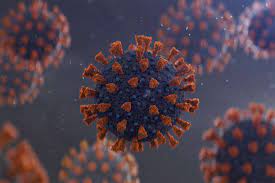
How Nigeria must prepare for new COVID-19 variant — LUTH CMD
The Chief Medical Director of the Lagos University Teaching Hospital, Idi-Araba, Professor Wasiu Adeyemo, has said Nigeria has the human capacity and structures to manage the new COVID-19 variant should there be any importation of the disease into the country.
He disclosed this during an exclusive interview with PUNCH Healthwise, affirming that there are existing measures in place to prevent the importation of the new COVID-19 variant into the country.
Adeyemo who was the Clinical Coordinator of over 200 clinical and administrative COVID-19 workers in LUTH during the outbreak of the disease in the country in 2020, said Nigeria is more ready now than in 2020 to contain any epidemic outbreak.
The Professor of Oral and Maxillofacial Surgery, however, listed measures Nigeria needs to take so as to forestall a possible outbreak, while assuring that there is nothing to worry about in the new variant.
The United Kingdom had on Friday announced the detection of its first case of the new COVID-19 variant, BA.2.86.
It said the case was confirmed in an individual with no recent travel history, which suggests a degree of community transmission within the UK.
The UK authority further said the strain had been identified in Israel, Denmark, and the United States.
The World Health Organisation and the US health authorities had, on Thursday, said they were closely monitoring a new variant of COVID-19, although the potential impact of BA.2.86 is currently unknown.
WHO designated the COVID-19 variant BA.2.86 as a ‘variant under monitoring’ due to the large number of mutations it carries.
Nigeria and the UK record a high volume of travellers who shuttle between both countries regularly.
Speaking with our correspondent, Adeyemo said, “What we need to do is to continue along the same trajectory that made us successful during the COVID-19 outbreak in 2020.
“We as clinicians need to have a high index of suspicion and then the directive will come from the Nigeria Centre for Disease Control and Prevention and institutions that are necessary. I don’t think if we do that, we are going to get it wrong.
“We recorded success in the fight against COVID-19, so, we are prepared. Luckily for us, whether we have a new variant or not, the disease is not new to us again.
“We know what to do. It is just do the needful. In terms of preparedness, we are prepared. Just like COVID-19, we didn’t allow it to ravage us as a country because we were prepared.”
The LUTH CMD assured that if the Federal Government follows the path of COVID-19 prevention and safety protocols, the new variant will not rear its ugly head in the country.
“The Federal Government got prepared and experts who know the pathology of the disease told us exactly what to do and we also prepared our paths to prevent the spread, and here we are.
“I think it is the same way we have to continue and we are more prepared now for any COVID-19 disease than in 2020. We have the structures in place”, he said.
Adeyemo advised Nigerians to take the necessary precautions, get vaccinated, and use facemasks when necessary.
Meanwhile, the Nigeria Centre for Disease Control, in a statement signed by its Director General, Dr. Ifedayo Adetifa on Saturday, said the new EG.5 and BA.2.86 subvariants of the Omicron variant of the SARS-CoV-2 virus have not been identified in Nigeria.
The NCDC, however, said its Technical Working Group is closely monitoring COVID-19 epidemiology – local, regional, continental, and global, including emerging variants.
The health agency noted, “Since there are few cases identified so far, there is not enough information to make conclusive assessments of virulence, transmission, and severity.
“However, we do not expect it to be much different from other omicron descendants currently circulating. Although the ancestor, BA.2 has been previously found in Nigeria, no BA.2.86 variant has been identified in Nigeria.
“Our influenza sentinel surveillance sites continue to provide information on COVID-19 prevalence in patients with influenza-like illness and severe acute respiratory illness. We have not observed any increase in the trend of COVID-19 in this patient group.”
Continuing, the NCDC said, “We continue to carry out genomics surveillance even with the low testing levels and encourage testing locations in states to ensure their positive samples are sent on to the NCDC for sequencing.
“Unrelated to the news of these emerging variants, the NCDC and partners are working on implementing an enhanced COVID-19 testing exercise in four states to obtain complementary and more detailed information about circulating variants in the country. In addition, COVID-19 rapid diagnostic kits are being distributed to improve bi-directional COVID-19 testing.
“As we have consistently advised that COVID-19 is here to stay, and is now mainly a problem for those at high risk – the elderly, those with underlying chronic illnesses especially hypertension, and diabetes, those on cancer treatment, organ transplant recipients, and those whose immune systems are suppressed for one reason or the other. ”





